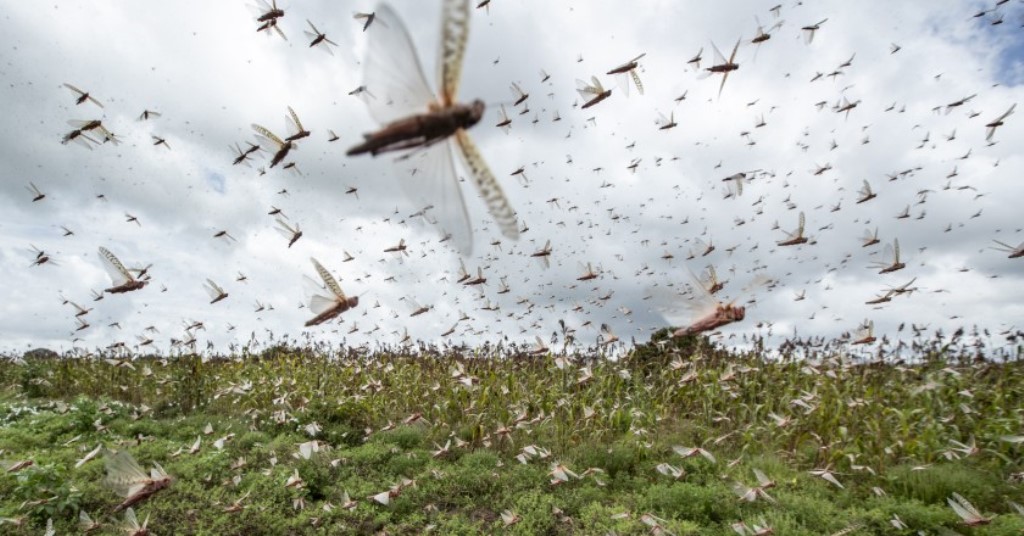THE government says it is well prepared to avert large swarms of desert locusts should they storm the country, as it has already procured 7,000 litres of pesticides aimed at fighting the fast-moving insects.
The Minister for Agriculture, Japhet Hasunga said on Wednesday that there was no cause for alarm as efforts were being made to control the swarms and safeguard people’s livelihoods and food security and avert further worsening of the food crisis in the country.
So far, he insisted, there was no any suspected case of the insects that have caused havoc in the neighbouring Kenya, even as the government dispatched a team of experts from the ministry to Arusha, Kilimanjaro, Tanga and Mara regions which borders Kenya.
Desert locusts that have been causing havoc in the east and Horn of African region are likely to move to Uganda, South Sudan and southwest Ethiopia, a senior official at the Desert Locust Control Organisation (DLCO) said last week.
“The DLCO and its partners are well equipped with pesticides and aircraft ready to manage the fast-moving insects,’’ said DLO Director General, Spephen Njoka.
The Agriculture minister said that Tanzania was a member of both DLO and the International Red Locust Control for Central and Southern Africa (IRLCO-CSA) and that it was paying all statutory fees, meaning, in case of any disaster of the insects in the country, the two organisations were offering financial and material support to avert any crisis.
In addition to the purchase of 7,000 litres of pesticides for spraying, the ministry had already requested responsible authorities within the government to request for an aircraft from SADC member states to manage the insects should they appear.
Usually spraying is done by a special aircraft which flies far above in order to avoid destruction of crops.
Mr Hasunga said in disaster preparedness, already, the government had also trained relevant government officials in order to equip them with relevant knowledge on how to avert crisis.
The government asked all residents and other stakeholders to volunteer information in case of any indicators of the desert locusts in order to ensure that food security in the country is maintained.
According to experts, large swarms of desert locusts continue to destroy crops and pastures across parts of Ethiopia, Somalia and Kenya.
Desert locusts that have been causing havoc in the east and Horn of African region are likely to move to Uganda, South Sudan and southwest Ethiopia, a senior official at the Desert Locust Control Organisation (DLCO) said last Friday







